
SCARS Institute’s Encyclopedia of Scams™ Published Continuously for 25 Years

The Framing Effect – Impacting Your Decisions About Your Future!
The framing effect is a cognitive bias that occurs when our perception of an issue or decision is influenced by the way it is presented to us. In other words, we are more likely to make a decision or form an opinion based on how the information is framed rather than the actual information itself.
How the Framing Effect Works
The framing effect works by tapping into our emotions and our tendency to avoid losses. When information is presented in a way that highlights potential losses, we are more likely to make risk-averse decisions. Conversely, when information is framed in a way that emphasizes potential gains, we are more likely to take risks.
This bias can be exploited by people who want to influence our decisions, such as advertisers, politicians, and salespeople. For example, an advertiser might frame a product as a way to avoid negative consequences, such as aging or social isolation, to make it more appealing to consumers.
Examples of the Framing Effect in our Daily Life
-
Medical treatment options: If a doctor presents a treatment option as having a 90% survival rate, people are more likely to choose that option than if it is presented as having a 10% mortality rate.
-
Financial investments: If an investment is presented as having a potential return of 10%, people are more likely to invest in it than if it is presented as having a potential loss of 10%. This is an example of how Pig Butchering Crypto Investment Scams lure in victims.
-
Political campaigns: Politicians often frame their opponents in a negative light to make themselves look more appealing to voters.
The Framing Effect and Romance Scams
The framing within a romance scam significantly impacts victims across various stages, manipulating emotions, trust, and perceptions throughout the process.
Lure Stage:
Initial Attraction: The framing at this stage involves creating an appealing persona or story that attracts the victim’s attention. Scammers craft profiles or personas that resonate with the victim’s desires, using flattering language, attractive photos, and shared interests to establish a connection.
In the lure stage, scammers often frame their online profiles and interactions to create an attractive and desirable persona, highlighting their positive qualities, accomplishments, and shared interests with the potential victim. They may use flattering language, compliments, and selective disclosure to frame themselves as someone the victim would want to know and be with.
This framing can make the victim more susceptible to the scammer’s advances, as they are drawn to the positive image presented and may overlook potential red flags or inconsistencies.
Grooming Stage:
Building Trust: Framing continues to intensify as scammers build trust and emotional bonds. They frame themselves as the ideal partner, demonstrating affection, understanding, and support. This phase involves sharing personal stories, creating a false sense of intimacy, and mirroring the victim’s emotions to solidify the connection.
During the grooming stage, scammers shift their framing tactics to focus on building an emotional connection with the victim. They may frame their interactions as a unique and special bond, using emotional language and expressing deep affection and care for the victim.
This framing can make the victim feel valued, loved, and emotionally invested in the relationship, increasing their vulnerability to the scammer’s manipulation.
Manipulation Stage:
Exploiting Vulnerabilities: Framing shifts subtly as scammers begin to exploit vulnerabilities discovered during the grooming phase. They frame themselves as the solution to the victim’s problems, often financial or emotional. Manipulative tactics include creating urgency, invoking guilt or pity, and weaving elaborate stories that lead the victim to believe they are the only one who can help the scammer in a crisis.
As the scam progresses into the manipulation stage, scammers employ various framing techniques to exploit the victim’s emotional attachment and gain control. They may frame financial requests as necessary expenses, emergency situations, or proof of love and commitment.
This framing can make the victim feel obligated to provide financial support, even if they are hesitant or have doubts about the scammer’s intentions.
Control Stage:
Isolation and Dependency: Framing becomes coercive (Gaslighting,) aiming to isolate the victim from their support network and reinforce dependency. Scammers frame the relationship as exclusive and use guilt or threats to discourage the victim from seeking advice or help from friends and family. The framing here reinforces the belief that the scammer is the victim’s only source of emotional support and security.
In the control phase, scammers maintain their grip on the victim by framing the relationship as essential for the victim’s happiness and well-being. They may isolate the victim from friends and family, framing their concerns and warnings as interference or jealousy.
This framing can make the victim increasingly dependent on the scammer for emotional support and validation, further solidifying the scammer’s control over the victim’s life.
Throughout these stages, the framing operates to create and perpetuate a false reality, one that aligns with the scammer’s objectives. It distorts the victim’s perception of the situation, creating a skewed narrative that reinforces the scammer’s control and authority within the relationship. This manipulation leaves victims feeling emotionally and psychologically trapped, making it difficult to recognize the fraudulent nature of the relationship until it’s too late.
Overcoming the Framing Effect in Daily Life
While the framing effect is a powerful bias, there are some things we can do to overcome it:
-
Be aware of the bias: The first step to overcoming any bias is to be aware of it. Once you know that the framing effect can influence your decisions, you can be more mindful of it and take steps to avoid its influence.
-
Consider alternative perspectives: When making a decision, try to consider the issue from multiple perspectives. This will help you to see the issue in a more balanced light and make a decision that is not based on emotional manipulation.
-
Seek out objective information: Don’t rely on biased sources of information. Instead, seek out objective information that can help you to make a more informed decision.
-
Take your time: Don’t rush into decisions. Take your time to think about the issue carefully and make sure that you are not being influenced by the framing effect.
By being aware of the framing effect and taking steps to overcome it, we can make more informed decisions that are based on logic and reason rather than on emotion and manipulation.
The Framing Effect’s Impact on Victim Recovery
The framing effect in a scam victim’s recovery from a romance scam can significantly impact their healing process.
Understanding the Manipulation:
Recognizing the framing used by scammers is crucial. Victims need to understand how the framing influenced their emotions, decisions, and perceptions during the scam. This comprehension helps them realize that the emotions they experienced were a result of manipulation, not genuine connections. In other words, it was not love, it was a deliberate violation!
Rebuilding Trust and Identity:
Victims often grapple with a shattered sense of trust and self-identity. Understanding the framing effect helps them differentiate between the false narrative created by the scammer and their authentic self. It aids in rebuilding trust in their own judgment and identity.
Emotional Healing:
Awareness of the framing’s impact allows victims to work through the emotional trauma. They can process the experience more objectively, addressing feelings of betrayal, guilt, or shame induced by the scam. This awareness helps in regaining emotional stability.
Preventing Recurrence:
Learning about the framing effect serves as a protective measure. Victims become more vigilant against similar manipulative tactics in the future, both in relationships and in other areas of life. It empowers them to recognize red flags and protect themselves from potential scams.
However, the recovery journey varies for each victim. Overcoming the framing effect involves professional guidance, emotional support, and a commitment to self-reflection. Breaking free from the scam’s influence requires patience, self-compassion, and a willingness to confront the trauma while reframing their perception of the experience.
Positive/Negative Framing
The framing effect can have a significant impact on a person’s recovery from their experience with a romance scam in the way they interpret and frame the scam. It can influence their emotions, behaviors, and ability to heal.
Negative Framing
When a scam victim frames their experience in a negative light, viewing it as a personal failure, a sign of gullibility, or a reflection of their low self-worth, they may experience feelings of shame, embarrassment, and self-blame. This negative framing can hinder their recovery process by reinforcing negative self-perceptions and making it difficult to move forward.
Positive Framing
On the other hand, if a scam victim frames their experience in a more positive light, acknowledging the manipulative tactics employed by the scammer and recognizing that they were a victim of a crime, they may experience feelings of empowerment, resilience, and a sense of regaining control. This positive framing can facilitate their recovery process by promoting self-compassion, fostering a sense of growth and learning, and encouraging them to seek support and rebuild their trust in others.
Changing the Narrative
To help scam victims shift from negative to positive framing, it is important to:
-
Normalize the experience: Emphasize that romance scams are prevalent and that many people fall victim to them, reducing the sense of personal failure.
-
Highlight the scammer’s manipulation: Explain the psychological tactics used by scammers to exploit victims’ emotions and vulnerabilities.
-
Promote self-compassion: Encourage self-forgiveness and understanding, emphasizing that victims were not to blame for the scammer’s actions.
-
Focus on resilience: Recognize the victim’s strength in surviving the scam and their ability to learn and grow from the experience.
-
Encourage support-seeking: Promote seeking help from professionals and trusted individuals to process the emotional impact and develop coping mechanisms.
By reframing the scam experience in a more positive light, scam victims can reduce self-blame, foster resilience, and accelerate their recovery process. Shifting the narrative from personal failure to victimization can empower them to heal, rebuild trust, and move forward with a healthier perspective.
How Framing Leads to Anger & Hate
The development of anger and hate can be a form of negative framing that can occur during a scam victim’s recovery too.
When scam victims experience anger and hate, they are framing the scam in a way that is causing them emotional distress. This can make it difficult for them to move forward and heal.
Anger and hate can be a natural response to being scammed. After all, scam victims have been deceived, manipulated, and often financially exploited. It is understandable that they would feel angry and resentful towards the scammer. However, if these emotions are not managed in a healthy way, they can become a barrier to recovery.
When scam victims focus on their anger and hate, they may ruminate on the scam, replaying the events in their minds over and over again. This can lead to feelings of helplessness, hopelessness, and despair. It can also make it difficult for them to trust others, even those who care about them.
- Toxic Self-Narratives That Feeds Depression in Scam Victims 2023 (scamsnow.com)
- The Self-Pity Trap & How To Overcome It (scamsnow.com)
- Scam Victims And The Reactivity Loop (scamsnow.com)
In addition, anger and hate can lead to unhealthy behaviors. Scam victims may lash out at others, become aggressive, or engage in self-destructive behaviors. This can further damage their relationships and make it even more difficult to recover from the scam. Often they involve themselves in endless exposing of scammers that just increases frustration and the lack of effectiveness. They seek justice through vigilantism and activities like scam baiting. They also lash out at professionals that are not responding the way they believe they should.
It is important for scam victims to find healthy ways to express and manage their anger and hate. They may find it helpful to talk to a therapist, join a support group, or engage in activities that help them to relax and de-stress. It is also important for them to remember that they are not alone and that there are people who care about them and want to help them heal.
Here are some tips for scam victims who are struggling with anger and hate:
-
Allow yourself to feel your emotions: It is important to acknowledge and accept your feelings of anger and hate. Trying to suppress these emotions will only make them stronger.
-
Express your anger in a healthy way: Talk to a trusted friend or family member, write in a journal, or engage in physical activity. Avoid expressing your anger in ways that could hurt yourself or others.
-
Focus on the future: Don’t dwell on the past. Instead, focus on rebuilding your life and moving forward.
-
Seek professional help: If you are struggling to manage your anger on your own, seek help from a therapist or counselor.
Remember, healing from a scam takes time and effort. Be patient with yourself and don’t be afraid to ask for help. With time and support, you can overcome the emotional pain of being scammed and build a happy and fulfilling life.
How Framing Leads to Denial & Avoidance
The development of denial and avoidance can be a form of negative framing that can occur during a scam victim’s recovery. Denial and avoidance are coping mechanisms that people use to deal with difficult or painful experiences. In the context of a scam, denial and avoidance can prevent victims from accepting the reality of the situation and taking steps to heal.
Denial involves refusing to accept the truth about the scam. This can manifest in various ways, such as downplaying the severity of the scam, minimizing the scammer’s actions, or blaming themselves for falling victim to the scam. Denial can prevent victims from acknowledging the emotional and financial impact of the scam, hindering their recovery process.
Avoidance involves distancing oneself from thoughts, feelings, or reminders of the scam. This can include avoiding conversations about the scam, refusing to look at financial statements, or engaging in distracting activities to avoid thinking about the scam. Avoidance can prevent victims from processing their emotions and developing healthy coping mechanisms, prolonging their emotional distress.
Negative framing of the scam experience can exacerbate denial and avoidance. When scam victims focus on the negative aspects of the scam, such as their perceived gullibility or the financial loss, they may feel overwhelmed and unable to confront the reality of the situation. This negative framing can reinforce denial and avoidance as a means of protecting themselves from further emotional pain.
To overcome denial and avoidance and promote healing, scam victims can benefit from:
-
Psychoeducation: Understanding the psychological impact of scams and the prevalence of denial and avoidance can help victims normalize their experiences and reduce self-blame. This website is a great place to start, and also on www.ScamsNOW.com
-
Therapy: Cognitive Behavioral Therapy (CBT) can be particularly effective in addressing denial and avoidance by challenging distorted thinking patterns and promoting acceptance of the scam experience. To find therapy and counseling options visit counseling.AgainstScams.org
-
Support Groups: Connecting with other scam victims can provide a safe space to share experiences, validate emotions, and encourage open communication. To learn about support options, go to support.AgainstScams.org
-
Self-Compassion: Encouraging self-forgiveness and understanding can help victims reduce negative framing and adopt a more positive outlook on their recovery.
Remember, healing from a scam is a gradual process, and setbacks are common. With patience, support, and appropriate coping strategies, scam victims can overcome denial and avoidance and move forward toward a healthier and more fulfilling life.
Summary
Overall, the framing effect plays a crucial role in romance scams, influencing victims’ perceptions, emotions, and decision-making throughout the entire process. Scammers skillfully employ framing techniques to build trust, manipulate emotions, and exploit victims’ vulnerabilities. Understanding the framing effect can help individuals recognize and avoid falling prey to romance scams.
In addition to framing, other factors can influence scam victims’ recovery, such as the level of financial loss, the duration of the scam, the victim’s support network, and their individual coping mechanisms. However, by acknowledging the impact of framing and adopting positive reframing strategies, victims can significantly enhance their recovery journey and regain a sense of control, self-worth, and emotional well-being.
More:
- Retrospective Framing – A Cognitive Bias – 2023 (romancescamsnow.com)
- Cognitive Biases Catalog (romancescamsnow.com)
- Toxic Self-Narratives That Feeds Depression in Scam Victims 2023 (scamsnow.com)
- The Self-Pity Trap & How To Overcome It (scamsnow.com)
- Scam Victims And The Reactivity Loop (scamsnow.com)
- Psychological Triggers/Emotional Triggers – What They Are And How They Work – 2023/2024 (scamsnow.com)
-/ 30 /-
What do you think about this?
Please share your thoughts in a comment below!
Table of Contents
- A Cognitive Bias That Affects Your Future
- The Framing Effect – Impacting Your Decisions About Your Future!
- How the Framing Effect Works
- Examples of the Framing Effect in our Daily Life
- The Framing Effect and Romance Scams
- Overcoming the Framing Effect in Daily Life
- The Framing Effect’s Impact on Victim Recovery
- Positive/Negative Framing
- How Framing Leads to Anger & Hate
- How Framing Leads to Denial & Avoidance
- Summary
- More About Cognitive Biases & Vulnerabilities
- More:
LEAVE A COMMENT?
Thank you for your comment. You may receive an email to follow up. We never share your data with marketers.
Recent Comments
On Other Articles
- on Love Bombing And How Romance Scam Victims Are Forced To Feel: “I was love bombed to the point that I would do just about anything for the scammer(s). I was told…” Feb 11, 14:24
- on Dani Daniels (Kira Lee Orsag): Another Scammer’s Favorite: “You provide a valuable service! I wish more people knew about it!” Feb 10, 15:05
- on Danielle Delaunay/Danielle Genevieve – Stolen Identity/Stolen Photos – Impersonation Victim UPDATED 2024: “We highly recommend that you simply turn away form the scam and scammers, and focus on the development of a…” Feb 4, 19:47
- on The Art Of Deception: The Fundamental Principals Of Successful Deceptions – 2024: “I experienced many of the deceptive tactics that romance scammers use. I was told various stories of hardship and why…” Feb 4, 15:27
- on Danielle Delaunay/Danielle Genevieve – Stolen Identity/Stolen Photos – Impersonation Victim UPDATED 2024: “Yes, I’m in that exact situation also. “Danielle” has seriously scammed me for 3 years now. “She” (he) doesn’t know…” Feb 4, 14:58
- on An Essay on Justice and Money Recovery – 2026: “you are so right I accidentally clicked on online justice I signed an agreement for 12k upfront but cd only…” Feb 3, 08:16
- on The SCARS Institute Top 50 Celebrity Impersonation Scams – 2025: “Quora has had visits from scammers pretending to be Keanu Reeves and Paul McCartney in 2025 and 2026.” Jan 27, 17:45
- on Scam Victims Should Limit Their Exposure To Scam News & Scammer Photos: “I used to look at scammers photos all the time; however, I don’t feel the need to do it anymore.…” Jan 26, 23:19
- on After A Scam, No One Can Tell You How You Will React: “This article was very informative, my scams happened 5 years ago; however, l do remember several of those emotions and/or…” Jan 23, 17:17
- on Situational Awareness and How Trauma Makes Scam Victims Less Safe – 2024: “I need to be more observant and I am practicing situational awareness. I’m saving this article to remind me of…” Jan 21, 22:55
ARTICLE META
Important Information for New Scam Victims
- Please visit www.ScamVictimsSupport.org – a SCARS Website for New Scam Victims & Sextortion Victims
- Enroll in FREE SCARS Scam Survivor’s School now at www.SCARSeducation.org
- Please visit www.ScamPsychology.org – to more fully understand the psychological concepts involved in scams and scam victim recovery
If you are looking for local trauma counselors please visit counseling.AgainstScams.org or join SCARS for our counseling/therapy benefit: membership.AgainstScams.org
If you need to speak with someone now, you can dial 988 or find phone numbers for crisis hotlines all around the world here: www.opencounseling.com/suicide-hotlines
A Note About Labeling!
We often use the term ‘scam victim’ in our articles, but this is a convenience to help those searching for information in search engines like Google. It is just a convenience and has no deeper meaning. If you have come through such an experience, YOU are a Survivor! It was not your fault. You are not alone! Axios!
A Question of Trust
At the SCARS Institute, we invite you to do your own research on the topics we speak about and publish, Our team investigates the subject being discussed, especially when it comes to understanding the scam victims-survivors experience. You can do Google searches but in many cases, you will have to wade through scientific papers and studies. However, remember that biases and perspectives matter and influence the outcome. Regardless, we encourage you to explore these topics as thoroughly as you can for your own awareness.
Statement About Victim Blaming
SCARS Institute articles examine different aspects of the scam victim experience, as well as those who may have been secondary victims. This work focuses on understanding victimization through the science of victimology, including common psychological and behavioral responses. The purpose is to help victims and survivors understand why these crimes occurred, reduce shame and self-blame, strengthen recovery programs and victim opportunities, and lower the risk of future victimization.
At times, these discussions may sound uncomfortable, overwhelming, or may be mistaken for blame. They are not. Scam victims are never blamed. Our goal is to explain the mechanisms of deception and the human responses that scammers exploit, and the processes that occur after the scam ends, so victims can better understand what happened to them and why it felt convincing at the time, and what the path looks like going forward.
Articles that address the psychology, neurology, physiology, and other characteristics of scams and the victim experience recognize that all people share cognitive and emotional traits that can be manipulated under the right conditions. These characteristics are not flaws. They are normal human functions that criminals deliberately exploit. Victims typically have little awareness of these mechanisms while a scam is unfolding and a very limited ability to control them. Awareness often comes only after the harm has occurred.
By explaining these processes, these articles help victims make sense of their experiences, understand common post-scam reactions, and identify ways to protect themselves moving forward. This knowledge supports recovery by replacing confusion and self-blame with clarity, context, and self-compassion.
Additional educational material on these topics is available at ScamPsychology.org – ScamsNOW.com and other SCARS Institute websites.
Psychology Disclaimer:
All articles about psychology and the human brain on this website are for information & education only
The information provided in this article is intended for educational and self-help purposes only and should not be construed as a substitute for professional therapy or counseling.
While any self-help techniques outlined herein may be beneficial for scam victims seeking to recover from their experience and move towards recovery, it is important to consult with a qualified mental health professional before initiating any course of action. Each individual’s experience and needs are unique, and what works for one person may not be suitable for another.
Additionally, any approach may not be appropriate for individuals with certain pre-existing mental health conditions or trauma histories. It is advisable to seek guidance from a licensed therapist or counselor who can provide personalized support, guidance, and treatment tailored to your specific needs.
If you are experiencing significant distress or emotional difficulties related to a scam or other traumatic event, please consult your doctor or mental health provider for appropriate care and support.
Also read our SCARS Institute Statement about Professional Care for Scam Victims – click here to go to our ScamsNOW.com website.


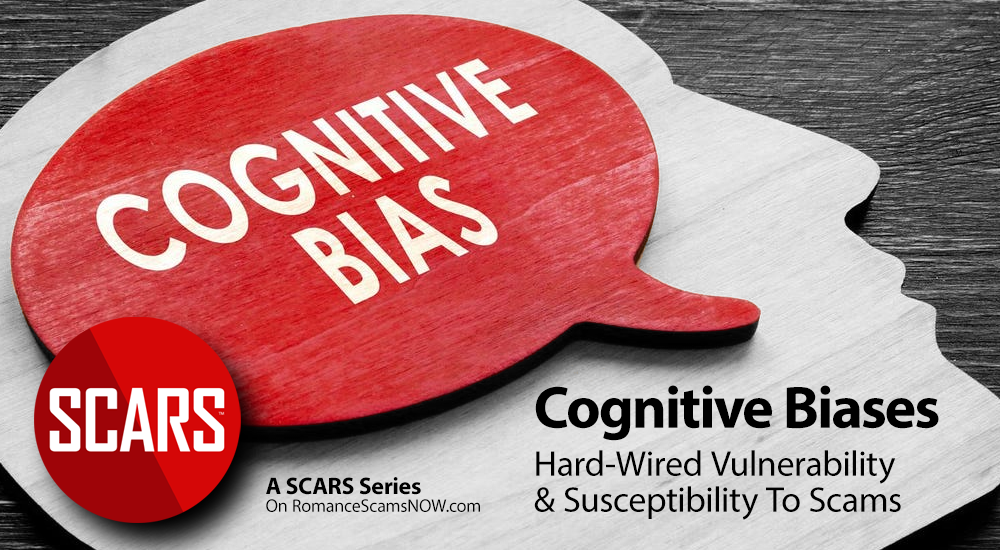
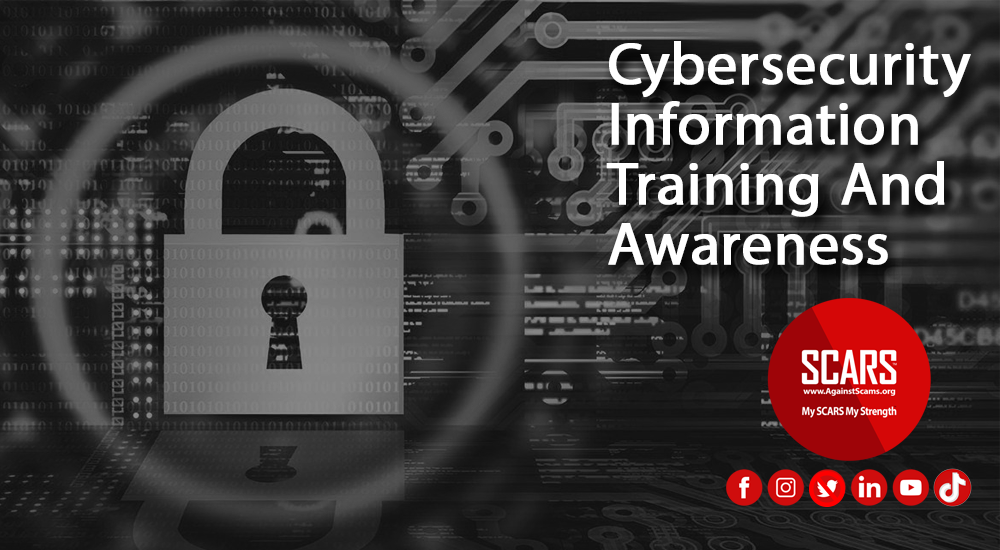

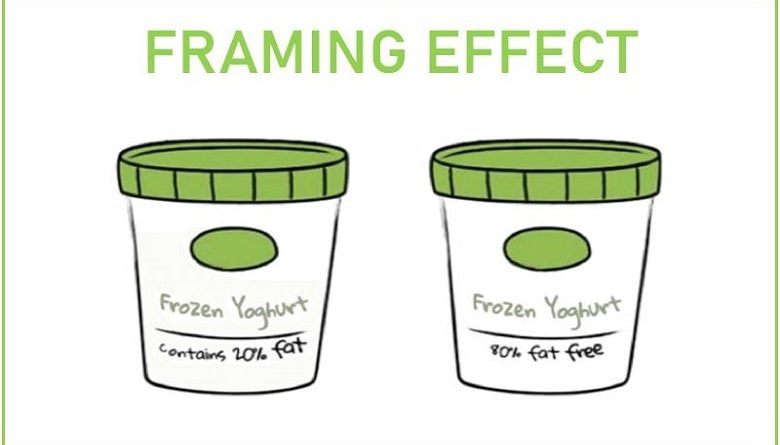
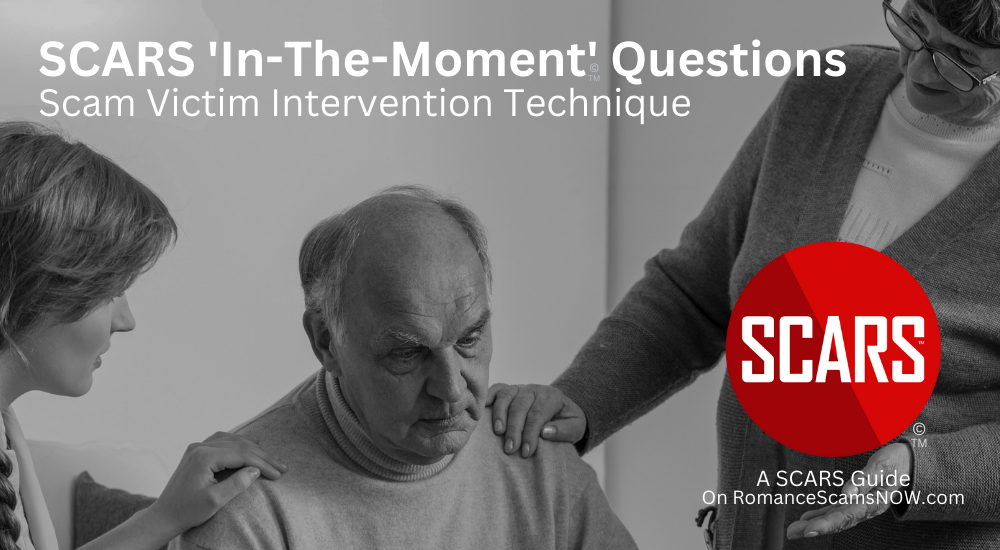








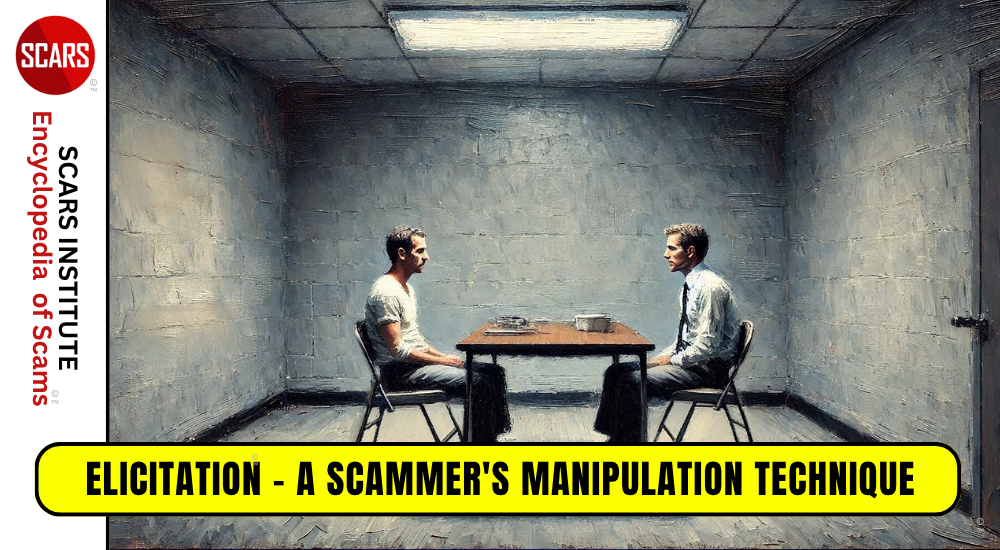

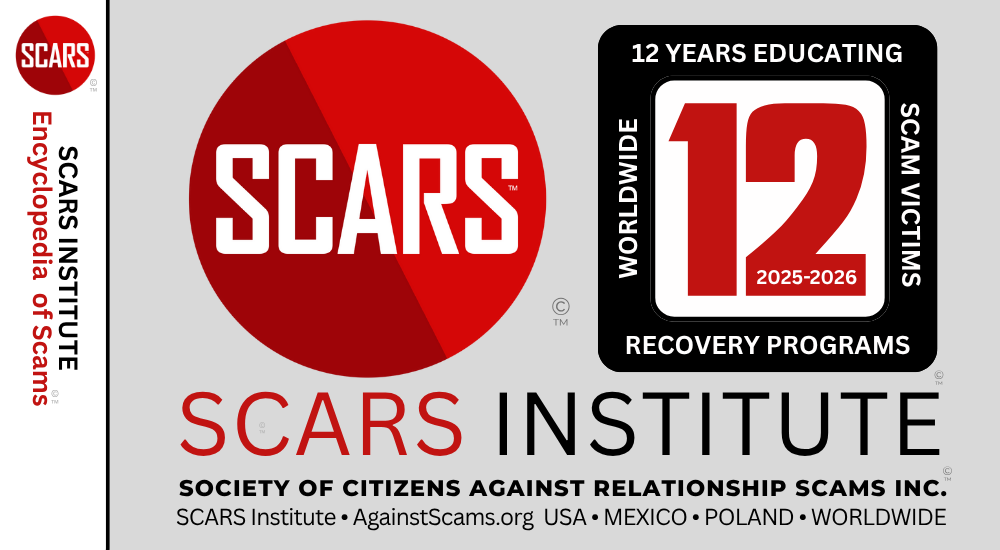




This article has helped me to understand how the criminals were able to lure, groom and manipulate me. That has been a sticking point for me – trying through the articles provided here to be able to pinpoint just what was done that made me “not me” enough to overcome some very strong ethical rules in myself. I strive for honesty and trustworthiness in my dealings with others. I usually take my time and think things through before taking action. I’m analytical. Somehow during the criminal(s) narrative I really started believing them and then took the actions required to satisfy their monetary need. Sometimes I feel like recognizing that moment is just there almost in reach – like searching for that word and saying “it’s on the tip of my tongue”. I have realized though I may never reach that point in time and recognize it as that moment I was not myself and under their control. Perhaps it’s not that important. But this article paints the different stages of the framing effect and how it is used in romance scams. I understand better now. And for now that is enough.
Now that my scam ended, I am putting in the work to heal and recover that which I have lost. The lessons learned and the opportunity for growth going forward is more than I can ever hope to achieve.
Yes, I was scammed out of a lot of money, but I will recover and this will be a painful but valuable life lesson.
Understanding the positive reframing effect is important for recovery. You learn to see the glass half full instead of half empty.